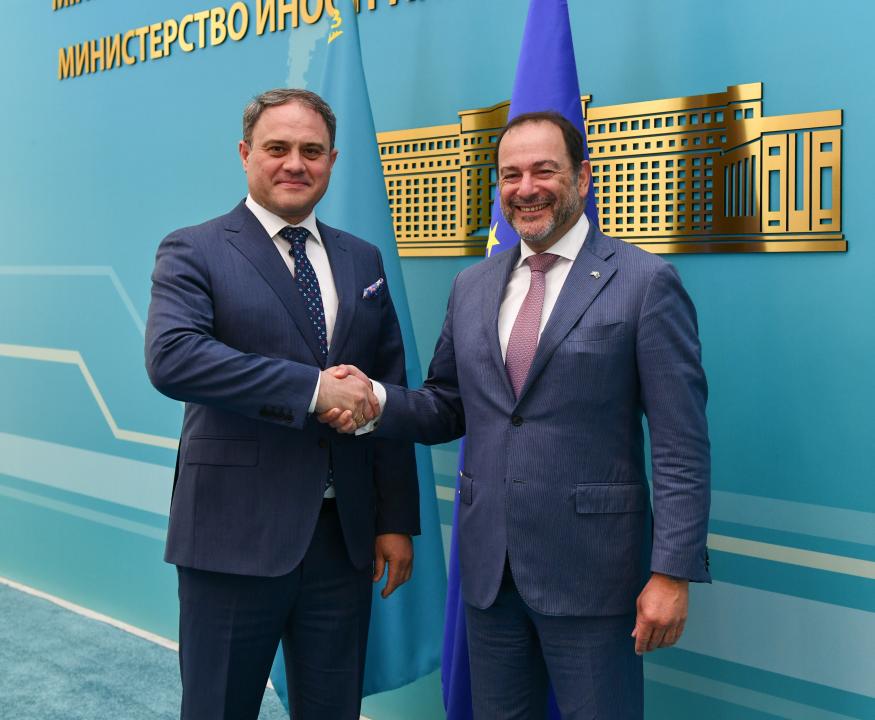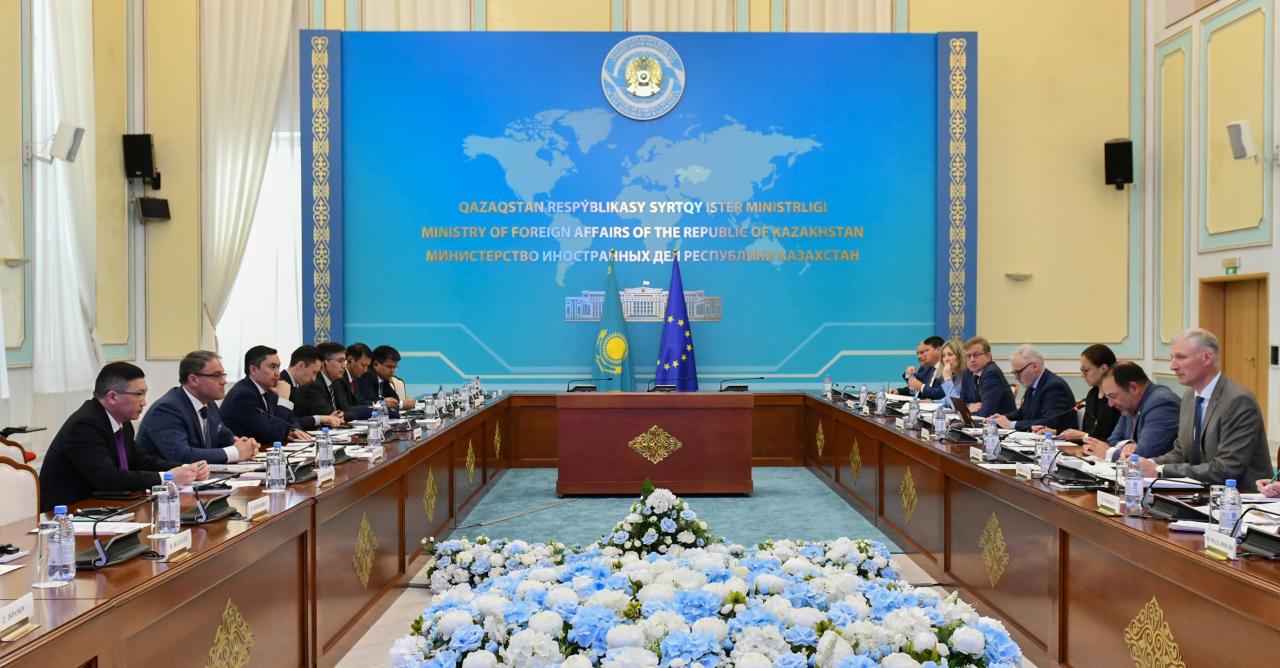ASTANA – Kazakhstan and the European Union addressed steps to deepen cooperation during the 20th Cooperation Committee meeting in Astana on May 23, reported the Kazakh Foreign Ministry’s press service.

Roman Vassilenko and Luc Devigne. Photo credit: Foreign Ministry.
Kazakh Deputy Minister of Foreign Affairs Roman Vassilenko and Deputy Managing Director for Europe and Central Asia, European External Action Service, Luc Devigne chaired the meeting on the implementation of the Enhanced Partnership and Cooperation Agreement between Kazakhstan and the EU member states, which covers 29 areas.
The parties discussed cooperation in trade, energy, education, water and environment, the rule of law, security, counter-terrorism, combating drug trafficking, as well as border management.
Recalling a meeting between Murat Nurtleu, Deputy Prime Minister and Foreign Minister, and Ylva Johansson, the European Commissioner for Home Affairs, the officials outlined plans to hold consultations on facilitating the visa regime for Kazakh citizens.

Photo credit: Foreign Ministry.
The parties also discussed the practical implementation of the EU-Kazakhstan Cooperation Facility Financing Agreement on implementing economic projects worth 9 million euros ($9.7 million), signed during the second EU-Central Asia Economic Forum in Almaty on May 19.
Discussing the connectivity of the EU and Kazakhstan, including within EU’s Global Gateway strategy, the parties highlighted the importance of developing and diversifying transit routes, including the Trans-Caspian International Transport Route, and its connectivity with the Trans-European Transport Network.
According to a study by the European Bank for Reconstruction and Development on sustainable transport connections between Europe and Central Asia, presented on May 19, “the Central Trans-Caspian Network, traversing through Southern Kazakhstan is identified as the most sustainable option, allowing for further transport network and regional development by taking a two-layer catchment area approach that spans the territory of all five Central Asian countries and covering most of the major population and production centers of the region.”
The EU is Kazakhstan’s leading trade and investment partner, accounting for more than 30% of Kazakhstan’s foreign trade and investments.
The trade turnover between the parties reached $39.9 billion in 2022, a 38% increase compared to the previous year. In January-March this year, the trade volume increased by 12.5%, exceeding $10 billion.
Last year, EU foreign direct investment in the Kazakh economy rose by 23% and reached $12.5 billion, the highest figure over the past decade.
